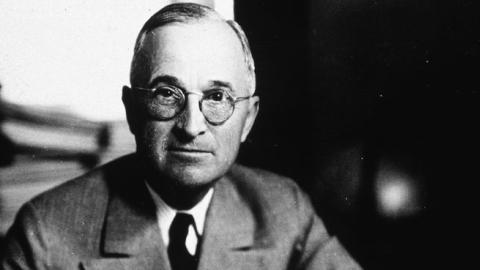On April 10, John Kerry became the highest-ranking U.S. official ever to visit the site where the atomic bomb that ended World War Two was dropped. The talk is now that Barack Obama might do the same thing during his official visit to Japan next month.
Let’s hope this isn’t another example of Obama’s extended Apology Tour. Obama tried to visit Hiroshima in 2009 to plead forgiveness for ending a war that, had it dragged on, would have cost Japan many more lives than the Hiroshima and Nagasaki bombs combined. But the Japanese government firmly nixed the idea, calling it a “non-starter.” Tokyo knew that this kind of masochistic stunt would only encourage anti-nuclear demonstrators and the lefties who oppose any military cooperation with the United States.
This time, we are told, an Obama visit will be approved by Prime Minister Shinzo Abe. And instead of apologizing, Obama apparently plans to mention North Korea and China as looming problems in the region.
We’ll see. When a liberal is tempted to do something that undermines his own nation’s interests and humiliates an ally, it’s hard stopping him — especially after the Obama administration has blown the one chance it had to really do something important to support Japan.
Yesterday the Australian government announced that it was awarding to France the multi-billion-dollar submarine contract to replace Australia’s Collins-class submarine fleet. Japan (which just a year ago seemed a shoo-in for the contract) came in a distant third behind Germany. This is a serious blow to Japan and the Abe government, which had been negotiating the deal for more than two years.
Japan knew that its Soryu-class diesel boat was superior to the French and German competition in every way, and it saw the sub deal as a way to launch its emergence as an important defense-systems exporter. The French, however, craftily played up the idea that their boats would be built entirely in Australian shipyards, meaning thousands of Australian jobs. The Japanese hesitated to make the same offer; building the submarines in Japan, they said, would ensure better quality and better security. That was not exactly the way to build support for a Japanese deal with Canberra, let alone with Australia’s powerful labor unions. (Later Tokyo relented and agreed to build all the boats in Australia, but by then it was too late to reverse public opinion.)
Losing the deal isn’t a blow only to Japan, it’s also a bad deal for the United States. One of the key advantages of the Soryu class is its interoperability with U.S. Navy systems, including weapons systems. The French-built subs will now be odd men out in any joint exercises with their Japanese and American counterparts, especially in vital hot spots such as the South China Sea. That hurts Australia, too, another important American ally. Weakening the operational integration of American, Japanese, and Australian naval forces will corrode America’s maritime security — and will only encourage China to believe it can pursue an increasingly expansive and aggressive strategy in the Indian Ocean and the Pacific.
Several times Japan hoped the Obama administration would weigh in to encourage Canberra to make the right decision, one that benefits all three countries — in vain. Instead of support, the White House and State Department have offered only silence on what could have been a major, positive game changer in East Asia and the Pacific Rim.
Obama and Kerry are more fixated on something that America did 70 years ago than on bolstering America’s strength in a vital region today. They’d rather tout their moral superiority to the White House of 1945 than support a country that’s been a tried-and-true ally for decades.
If Obama does apologize later this month for Truman’s fateful WWII decision, it might not be a day that will live in infamy, but it will be all too typical of this administration — and further proof that its pledge to “pivot to the Pacific” belongs in the same category as “if you like your doctor, you can keep your doctor.”














